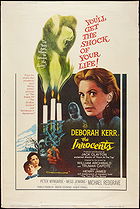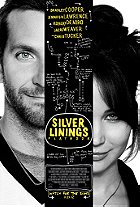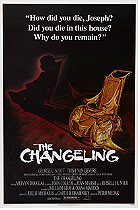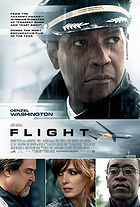There's plenty for horror enthusiasts to enjoy about 2002's Ju-on, a Japanese horror film that made a lot of waves around the world upon release and was frequently compared to 1998's Ringu. Directed by Takashi Shimizu, this is a well-made genre offering which provides a handful of thrills and chills within a fascinating narrative framework. It's a stylish haunted house story, benefitting from an array of creepy images and competent cinematography. Nevertheless, the hype is perhaps a bit on the hyperbolic side; Ju-on never quite attains excellence.

The term "ju-on" comes from Japanese legend; it is a curse that's born from a person who dies in a fit of rage. The curse of the movie was born when a jealous husband killed his entire family under the belief that his wife loves another man and his son is not actually his blood. Subsequently, their home becomes a contagion of evil, infected with a curse prepared to claim all those who come into contact with it. Ju-on is divided into six parts; it's a Pulp Fiction style anthology of stories involving an array of characters who become affected by the curse. It flashes backwards and forwards in time, revealing the fate of each of the characters, how they come to enter the house, and how they meet their end. The most prominent story arc concerns social worker Rika (Megumi Okina), who is sent to take care of an elderly woman in a vegetative state. She finds the house in complete disarray, and it doesn't take long for the sinister ghosts to make an appearance.
Ju-on suffers from storytelling and pacing difficulties, as it's not as bone-chillingly atmospheric or as enthralling as something like Ringu. When it dabbles in scares, it definitely delivers, but the in-between stuff is a mixed bag. Perhaps this is due to the fact that multiple stories are being told - we are never given a well-developed central character to latch onto. While Rika is the protagonist in theory, we do not get to know much about her as a person; she blurs into the other characters in the film, all of whom are thinly-sketched and at times barely distinguishable. Moreover, due to all the jumps in the timeline, Ju-on is at times confusing and difficult to follow. Although the structure is inventive since it theoretically allows for continual payoffs as it jumps from short segment to short segment, the end result is so-so.

On the upside, writer-director Takashi Shimizu displays more innovation than most Hollywood horror pictures, relying a lot on soundscape and creepy visuals. Ju-on was originally a made-for-TV production helmed by Shimizu, hence this was the filmmaker's shot at remaking his own film with the freedom of a bigger budget and theatrical distribution. And afterwards, Shimizu also helmed the American remake produced in 2004. How's that for enthusiasm towards improving one's work? While this particular incarnation falls short of greatness, Shimizu displays great skill behind the camera here, with a handful of impressive special effects sequences and effective use of eerie sounds.
At the end of the day, Ju-on is more creepy than outright terrifying, but it is a worthwhile addition to a genre that has grown increasingly formulaic and lazy. There's nothing especially damaging or wrong about the film, but it doesn't exactly break new ground either. Horror fans should check it out for sure, though more casual or passive viewers may not find a great deal here that appeals to them.
6.5/10
 Login
Login
 Home
Home 183 Lists
183 Lists 1674 Reviews
1674 Reviews Collections
Collections
 0 comments,
0 comments, 
































